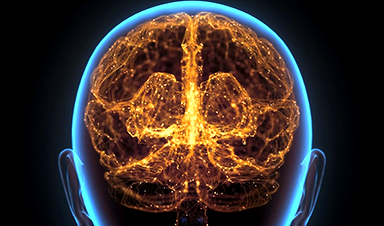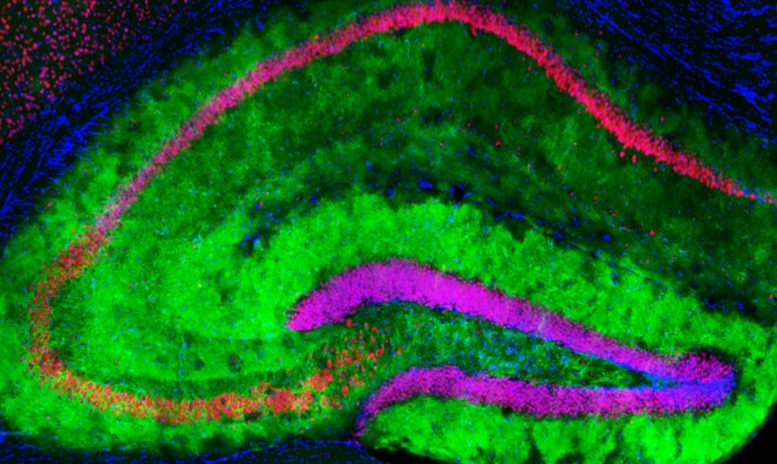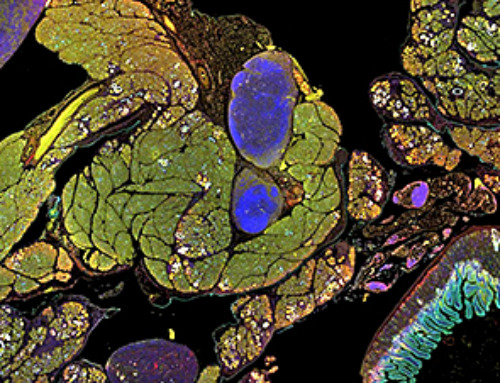Research from Weill Cornell Medicine reveals that astrocyte receptors impact cognitive functions differently in males and females, suggesting a need for sex-specific approaches in developing treatments targeting these brain cells.
Scientists at Weill Cornell Medicine have discovered the first evidence that receptors in astrocytes, brain cells that support and regulate neurons, can have contrasting effects on cognitive function in male and female preclinical models. This research highlights the role of astrocytes in contributing to gender-specific brain mechanisms.
While many studies have tested the behavioral effects of astrocytic receptors, none of them have addressed whether biological sex plays a role and most have tested only males. This study, published on May 24 in Cell Reports, challenges the long-standing assumption that astrocytic signaling has similar cognitive effects in both sexes.
“Our study reveals that previously reported cognitive effects in males can’t be extrapolated to females,” said Dr. Anna G. Orr, the Nan and Stephen Swid Assistant Professor of Frontotemporal Dementia Research and an assistant professor of neuroscience in the Feil Family Brain and Mind Research Institute and the Helen and Robert Appel Alzheimer’s Research Institute at Weill Cornell Medicine.
Changes in astrocytic receptors are seen in various neurological conditions with known sex differences, including neurodegenerative disorders, schizophrenia, stroke, and epilepsy. However, the mechanisms promoting sex differences remain poorly understood.
How do Male and Female Brains Differ?
In the study, Dr. Samantha M. Meadows, first author and former graduate student in the Orr lab, focused on mGluR3, a predominant glutamate receptor in astrocytes and a top-altered gene in dementia. The team used gene editing and stimulation of engineered receptors in animal models to selectively manipulate astrocytes and examine the effects of mGluR3 and related receptors on learning, memory, and other cognitive and behavioral outcomes.
The researchers found that increasing astrocytic mGluR3 levels enhanced memory in older females and reducing these levels was sufficient to impair memory in young females, demonstrating that mGluR3 promotes memory recall in females. However, in males, reducing mGluR3 enhanced memory, and increasing the receptor had no effects. “Interestingly, the cognitive impact of these receptors is not conserved among sexes,” Dr. Meadows said.
This image of the mouse hippocampus, a part of the brain involved in learning and memory, shows mGluR3 receptors on astrocytes (green), neurons (red), and cell nuclei (blue). Credit: Orr Lab
To understand if these divergent effects were unique to mGluR3 or reflected a broader feature of astrocytic receptor signaling, Dr. Meadows worked with co-author Dr. Adam L. Orr, an assistant professor of research in neuroscience in the Brain and Mind Research Institute and the Appel Alzheimer’s Disease Research Institute, to selectively stimulate different astrocytic receptors while mice performed tasks involving learning and memory.
To their surprise, the team found further evidence that receptor activation caused either memory enhancement or impairment, depending on biological sex. “Normal brain function seems to require a sex-specific balance in astrocytic signaling,” Dr. Adam Orr said.
This study suggests that mGluR3 modulators being developed for treating disorders such as schizophrenia and anxiety may need further study to assess their impact on different sexes. “Therapeutics influencing astrocytic receptors may cause sex-specific cognitive effects in part due to the divergent roles of astrocytes in males and females,” said Dr. Anna Orr.
The lab is investigating what may cause the differential effects and if other brain functions are also changed in a sex-specific way.
Reference: “Hippocampal astrocytes induce sex-dimorphic effects on memory” by Samantha M. Meadows, Fernando Palaguachi, Minwoo Wendy Jang, Avital Licht-Murava, Daniel Barnett, Till S. Zimmer, Constance Zhou, Samantha R. McDonough, Adam L. Orr and Anna G. Orr, 24 May 2024, Cell Reports.
DOI: 10.1016/j.celrep.2024.114278
News
Studies detail high rates of long COVID among healthcare, dental workers
Researchers have estimated approximately 8% of Americas have ever experienced long COVID, or lasting symptoms, following an acute COVID-19 infection. Now two recent international studies suggest that the percentage is much higher among healthcare workers [...]
Melting Arctic Ice May Unleash Ancient Deadly Diseases, Scientists Warn
Melting Arctic ice increases human and animal interactions, raising the risk of infectious disease spread. Researchers urge early intervention and surveillance. Climate change is opening new pathways for the spread of infectious diseases such [...]
Scientists May Have Found a Secret Weapon To Stop Pancreatic Cancer Before It Starts
Researchers at Cold Spring Harbor Laboratory have found that blocking the FGFR2 and EGFR genes can stop early-stage pancreatic cancer from progressing, offering a promising path toward prevention. Pancreatic cancer is expected to become [...]
Breakthrough Drug Restores Vision: Researchers Successfully Reverse Retinal Damage
Blocking the PROX1 protein allowed KAIST researchers to regenerate damaged retinas and restore vision in mice. Vision is one of the most important human senses, yet more than 300 million people around the world are at [...]
Differentiating cancerous and healthy cells through motion analysis
Researchers from Tokyo Metropolitan University have found that the motion of unlabeled cells can be used to tell whether they are cancerous or healthy. They observed malignant fibrosarcoma cells and [...]
This Tiny Cellular Gate Could Be the Key to Curing Cancer – And Regrowing Hair
After more than five decades of mystery, scientists have finally unveiled the detailed structure and function of a long-theorized molecular machine in our mitochondria — the mitochondrial pyruvate carrier. This microscopic gatekeeper controls how [...]
Unlocking Vision’s Secrets: Researchers Reveal 3D Structure of Key Eye Protein
Researchers have uncovered the 3D structure of RBP3, a key protein in vision, revealing how it transports retinoids and fatty acids and how its dysfunction may lead to retinal diseases. Proteins play a critical [...]
5 Key Facts About Nanoplastics and How They Affect the Human Body
Nanoplastics are typically defined as plastic particles smaller than 1000 nanometers. These particles are increasingly being detected in human tissues: they can bypass biological barriers, accumulate in organs, and may influence health in ways [...]
Measles Is Back: Doctors Warn of Dangerous Surge Across the U.S.
Parents are encouraged to contact their pediatrician if their child has been exposed to measles or is showing symptoms. Pediatric infectious disease experts are emphasizing the critical importance of measles vaccination, as the highly [...]
AI at the Speed of Light: How Silicon Photonics Are Reinventing Hardware
A cutting-edge AI acceleration platform powered by light rather than electricity could revolutionize how AI is trained and deployed. Using photonic integrated circuits made from advanced III-V semiconductors, researchers have developed a system that vastly [...]
A Grain of Brain, 523 Million Synapses, Most Complicated Neuroscience Experiment Ever Attempted
A team of over 150 scientists has achieved what once seemed impossible: a complete wiring and activity map of a tiny section of a mammalian brain. This feat, part of the MICrONS Project, rivals [...]
The Secret “Radar” Bacteria Use To Outsmart Their Enemies
A chemical radar allows bacteria to sense and eliminate predators. Investigating how microorganisms communicate deepens our understanding of the complex ecological interactions that shape our environment is an area of key focus for the [...]
Psychologists explore ethical issues associated with human-AI relationships
It's becoming increasingly commonplace for people to develop intimate, long-term relationships with artificial intelligence (AI) technologies. At their extreme, people have "married" their AI companions in non-legally binding ceremonies, and at least two people [...]
When You Lose Weight, Where Does It Actually Go?
Most health professionals lack a clear understanding of how body fat is lost, often subscribing to misconceptions like fat converting to energy or muscle. The truth is, fat is actually broken down into carbon [...]
How Everyday Plastics Quietly Turn Into DNA-Damaging Nanoparticles
The same unique structure that makes plastic so versatile also makes it susceptible to breaking down into harmful micro- and nanoscale particles. The world is saturated with trillions of microscopic and nanoscopic plastic particles, some smaller [...]
AI Outperforms Physicians in Real-World Urgent Care Decisions, Study Finds
The study, conducted at the virtual urgent care clinic Cedars-Sinai Connect in LA, compared recommendations given in about 500 visits of adult patients with relatively common symptoms – respiratory, urinary, eye, vaginal and dental. [...]






















